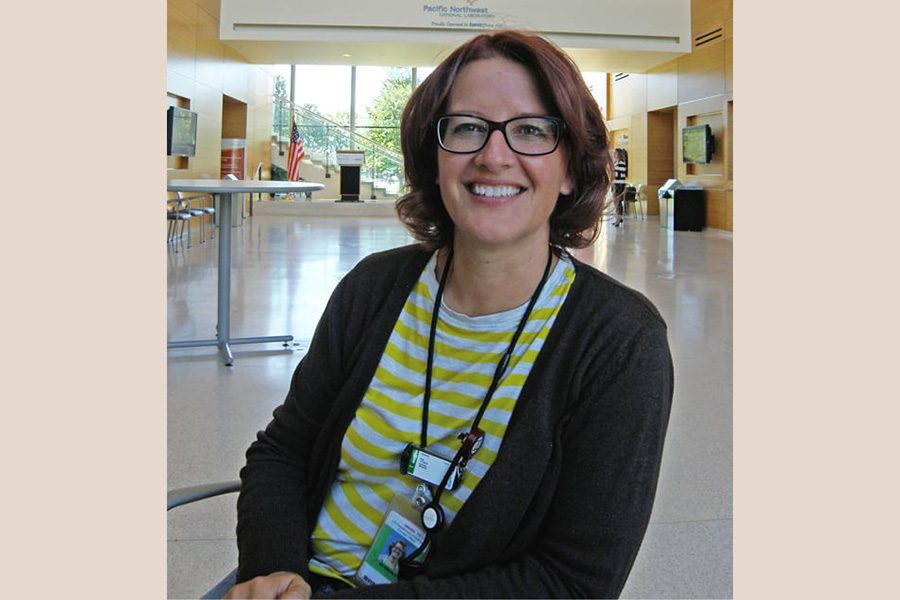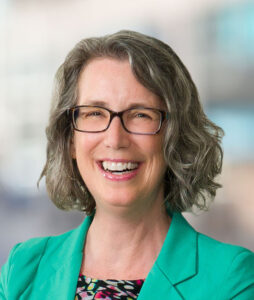
Home » CBC’s nuclear tech grads find jobs in their own backyard
CBC’s nuclear tech grads find jobs in their own backyard

September 16, 2016
A pastry chef traded his apron and kitchen for protective gear to work at the Hanford nuclear reservation tank farms.
Just how does a pastry chef become a nuclear chemical operator?
For Brett Crusselle, it meant a tough two years of classes in the nuclear technology program at Columbia Basin College.
Crusselle, 33, of Pasco, graduated in the spring and landed a full-time job at Richland’s Washington River Protection Solutions, which employs 14 program graduates.
“I have a family and I wanted a more stable job,” he said.
It’s a route 99 graduates have taken at the Pasco college since the first class graduated in 2011 with two-year associate of applied science degrees in three areas: non-licensed nuclear operator, radiation protection technician, and instrumentation and control technician. One-year certificates also are available.
Coffee shop brainstorming
Seven years ago a physicist and a college dean met at a Starbucks to sketch out a plan to train skilled workers for jobs waiting in the Tri-City nuclear industry.
“The next thing we knew we had a program up and running,” said Lloyd Keith, human performance improvement manager for WRPS in Richland.
The coffee shop meeting between Keith and Derek Brandes, then-dean for career and technical education at CBC, eventually resulted in the community college program.
Keith and Brandes, now president of Walla Walla Community College, along with Energy Northwest and Hanford contractors, recognized the need to train successors for an aging work force.
“So many people were retiring and we knew we’d be struggling to fill seats,” Keith said.
They tapped into the knowledge of local nuclear experts to develop the curriculum.
“By having industry folks at the table we could take the national nuclear curriculum and modify it to the needs of our community. An advisory committee made sure students were coming out with the skills needed in the work force,” said Brandes, adding that he’s seeing students from that first class who are in great positions around the country.
Leah Gillette-Fox, CBC’s career and technical programs specialist, agreed, saying the instructors have a real passion for the nuclear industry. “This program is really a community partnership. We’re the ship and they help steer it,” she said.
Graduation, then a job
Many of the nuclear technology graduates end up with jobs at Energy Northwest or with contractors working to clean up the waste left behind from the past production of plutonium for the nation’s nuclear weapons program at Hanford.
In the past four-and-a-half years, 12 graduates were hired at the public power agency, said Grover Hettel, vice president for operations at Energy Northwest.
He said the CBC graduates are ready to get to work and have all the right certifications because the program is nationally accredited by the Institute of Nuclear Power Operations.
The students “coming from CBC are bright, eager to learn and to grow and we really do like hiring them,” Hettel said.
Brenda Wiesner, 48, of Richland, graduated with the program’s first class in 2011. Since earning her radiation protection technician degree, she’s traveled the country to work at outages at nuclear power plants across the country, including Energy Northwest’s Columbia Generating Station near Richland.
She’s now with Pacific Northwest National Laboratory in Richland, working as a radiological source custodian for the lab’s radiation portal monitoring program. And she’s one of the nuclear tech program’s biggest proponents, serving on its advisory board to provide input on the curriculum and coaching students on how to land their first internship.
“I’m really a strong advocate for these two-year vocational programs and think they’re an excellent and good path to go down. After two years worth of time, you’ve got a good paying job,” she said.
Her 22-year-old son will be following in her footsteps, joining 29 others this fall when he begins the CBC program Sept. 19.
As Wiesner looks to the future, she dreams of one day working for the International Atomic Energy Agency in Vienna. Until then, “I’m here to learn everything I can and figuring out what doors there are. I don’t even know which ones exist yet. There’s a lot of opportunity here,” she said.
Janese Thatcher, CBC’s dean for computer science, engineering, and career and technical education, agreed: “Even though it has a nuclear focus, our students can go into other areas. Our graduates are very versatile.”
They have transferrable skills to work in process operations, manufacturing and energy generation sectors, she said.
A ‘rigorous’ program
The coursework isn’t easy. Keith calls it rigorous, and Wiesner said CBC “crams a lot into two years.”
Class sizes range from 18 to 30 students. Core classes include nuclear math and physics, radiation safety, nuclear facilities, electricity and power transmission. Internships are a key piece, with students getting plenty of hands-on experience on a job site, as well as in classroom labs.
Keith said the program is “definitely more challenging than a standard AA-type program. There’s a lot of technical material,” he said.
He also pointed out the program is different because all the instructors are adjunct professors who work in the fields they teach.
“They enjoy doing it. They like to share what they know about the nuclear industry,” Keith said.
And that makes a difference to the students, Crusselle said.
“They really want us to succeed and they want us to be the next generation of nuclear workers,” he said.
It’s a role Crusselle said he takes seriously.
“We’re cleaning up the legacy of Hanford. … We’re protecting the environment, the river and the area for those who live out here, and making sure it’s properly taken care of,” he said.
Local News Education & Training
KEYWORDS september 2016




